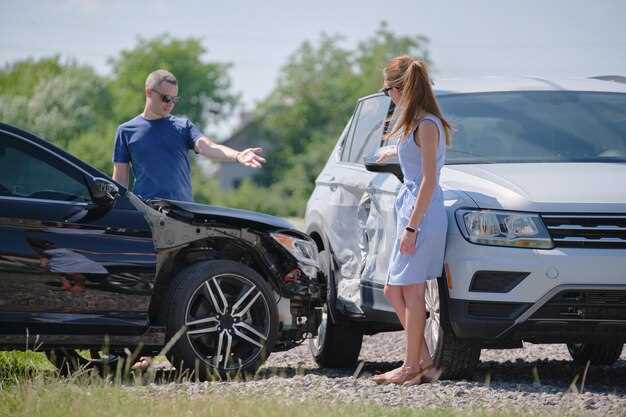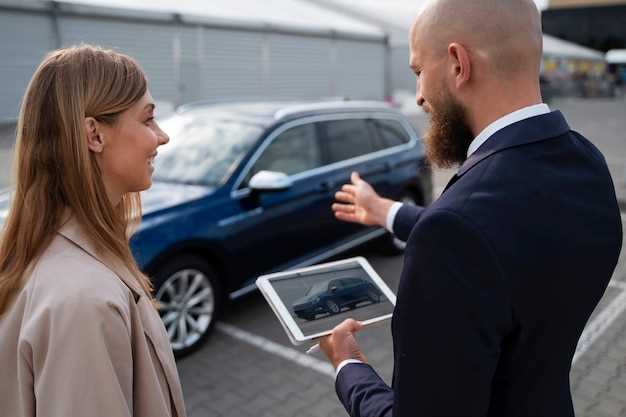Pros and cons of buying a salvaged vehicle

When it comes to purchasing a vehicle, many buyers encounter the term salvage more frequently due to the growing popularity of salvaged cars in the market. These vehicles, often priced significantly lower than their non-salvaged counterparts, can appear to be an enticing option for those looking to save money. However, before diving into the world of salvaged vehicles, it is critical to weigh the potential benefits and drawbacks to make an informed decision.
One of the primary pieces of advice for prospective buyers is to thoroughly understand the implications of purchasing a salvaged car. These vehicles may have been damaged due to accidents, flooding, or fire, which can lead to a myriad of issues down the line. While some salvaged cars can be repaired and driven safely, others may come with hidden problems that could negate any initial savings. Being aware of these risks is essential for anyone considering the purchase of such a vehicle.
In conclusion, buying a salvaged car can be a double-edged sword, offering both significant savings and potential pitfalls. By carefully evaluating the condition of the vehicle, the extent of its damage, and the costs associated with repairs, buyers can navigate this complex landscape. Ultimately, taking the time to weigh the pros and cons will empower buyers to make the best choice for their needs and budget.
Evaluating Cost-Benefit Analysis for Salvaged Cars

When considering the purchase of a salvaged car, conducting a thorough cost-benefit analysis is crucial. This process involves assessing both the potential savings and the risks associated with buying a vehicle previously declared a total loss.
One of the primary benefits of choosing a salvaged vehicle is the lower initial purchase price. Salvage cars often sell for a fraction of the cost of their non-damaged counterparts, allowing buyers to save money upfront. However, this financial advantage must be balanced against the possible costs of repairs and maintenance, which can accumulate quickly if the vehicle has significant damage.
Another important factor is the availability of parts. Salvaged cars might need specific components replaced or repaired, and sourcing these can sometimes be difficult or costly. Buyers should carefully consider the make and model of the car, as certain vehicles may have more accessible parts than others. Researching this aspect before making a decision can lead to significant long-term savings.
Additionally, evaluating the car’s history is vital. A thorough check on the vehicle’s past accidents, titles, and prior repairs can inform potential buyers of hidden issues. Investing time in obtaining a comprehensive vehicle history report can provide insights that directly impact the car’s value and future reliability.
It’s also essential to factor in insurance costs for salvage vehicles. Many insurance companies have varying policies regarding coverage for salvaged cars, and it may be harder to obtain full coverage. Buyers should seek advice on what types of coverage are available and how they may affect future costs.
As with any purchase, buyers must weigh their own priorities and financial situation. The appeal of a lower price must be considered alongside the risks and potential long-term expenses involved with owning a salvage vehicle. Ultimately, a well-rounded cost-benefit analysis will help prospective buyers determine if a salvaged car aligns with their needs and budget.
Identifying Potential Risks and Maintenance Challenges

Buying a salvage vehicle can be an appealing option, primarily due to lower costs. However, it’s crucial to recognize the potential risks and maintenance challenges associated with such purchases. One of the primary risks lies in the vehicle’s history; salvage titles often indicate significant damage, which may not always be evident at first glance. As a buyer, it’s advisable to conduct thorough inspections and obtain a detailed history report to ascertain the extent of previous issues.
Another consideration is the availability of replacement parts. Due to the unique nature of salvage vehicles, finding specific components can be challenging, leading to higher costs and potential delays in repairs. This scarcity may hinder your ability to maintain the vehicle effectively over time, emphasizing the importance of conducting research on the make and model before buying.
In addition to parts availability, you may face higher maintenance challenges. Salvaged vehicles might require more frequent repairs, and their reliability can be questionable. Therefore, it’s prudent to seek advice from trusted mechanics who can provide insights into what specific areas may need attention and how frequently maintenance should be performed.
Moreover, some insurance companies may impose higher premiums or even refuse coverage on salvage vehicles, which could create unexpected financial burdens. It’s essential to explore insurance options thoroughly to understand the potential implications and ensure affordable coverage.
In conclusion, while the prospect of purchasing a salvage vehicle can be tempting, potential risks and maintenance challenges should not be underestimated. Weighing the pros and cons carefully and seeking professional advice will ultimately guide you in making a more informed decision.
Understanding Insurance and Resale Value Considerations
When considering buying a salvage car, it’s essential to understand how insurance and resale values can impact your investment. Both aspects require careful evaluation to avoid potential financial pitfalls.
Insurance Implications:
- Salvage vehicles often come with limited insurance options. Many insurers may only offer liability coverage or may charge higher premiums.
- Comprehensive and collision coverage can be difficult to obtain for a salvage title car, which could leave you vulnerable in case of an accident.
- Some insurers will require inspections before providing any coverage, adding to your initial costs.
- Always compare different insurance providers to find the best coverage options for a salvage car.
Resale Value Considerations:
- Salvaged cars typically depreciate faster than standard vehicles, making them harder to sell in the future.
- Potential buyers might be wary of purchasing a salvaged vehicle due to concerns about its history and reliability.
- Restoration quality plays a significant role in resale value; a well-repaired salvage car can retain a better value than one poorly restored.
- It’s advisable to document all repairs and restorations for future resale, as this can enhance credibility with prospective buyers.
In summary, when buying a salvage vehicle, understanding the implications of insurance and the potential effects on resale value is critical. Make informed decisions to ensure that you maximize your investment and avoid unexpected costs down the road.




